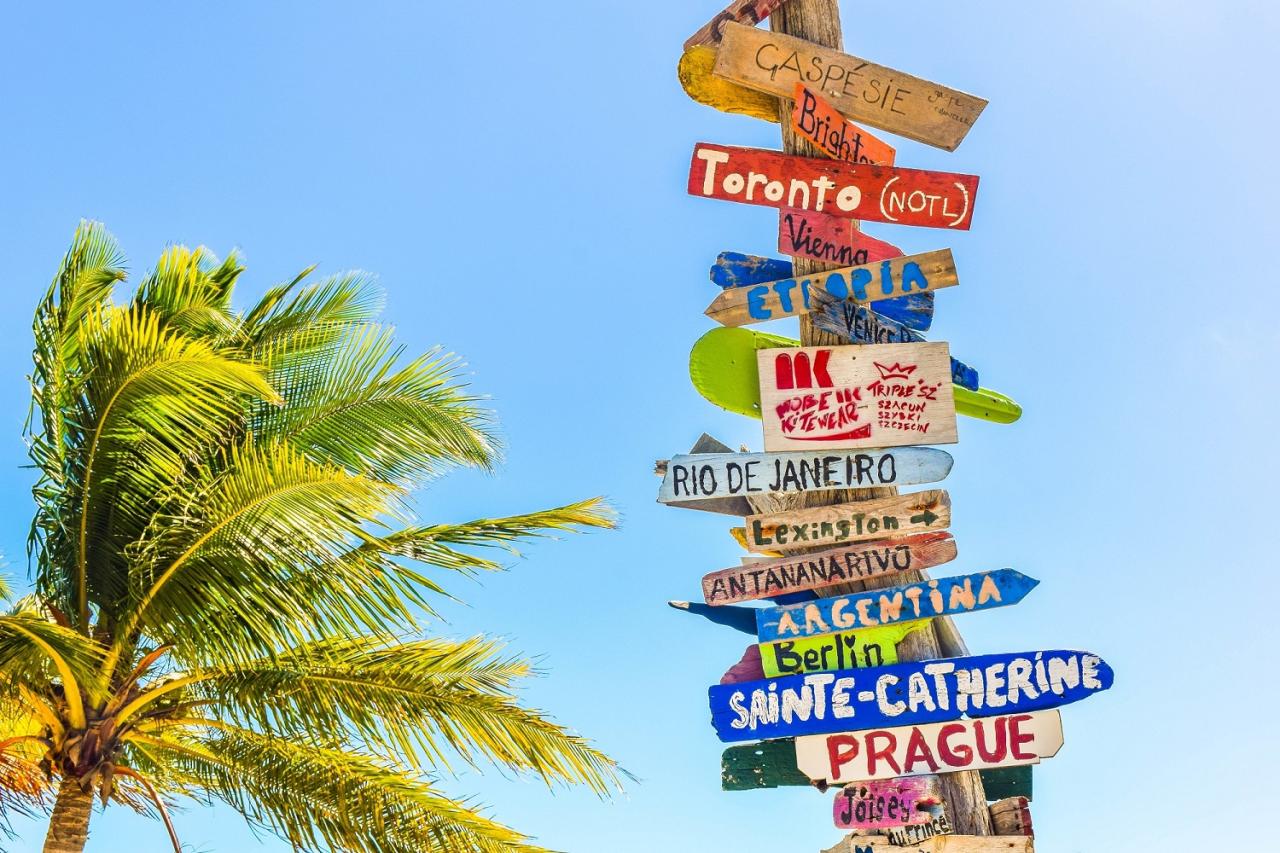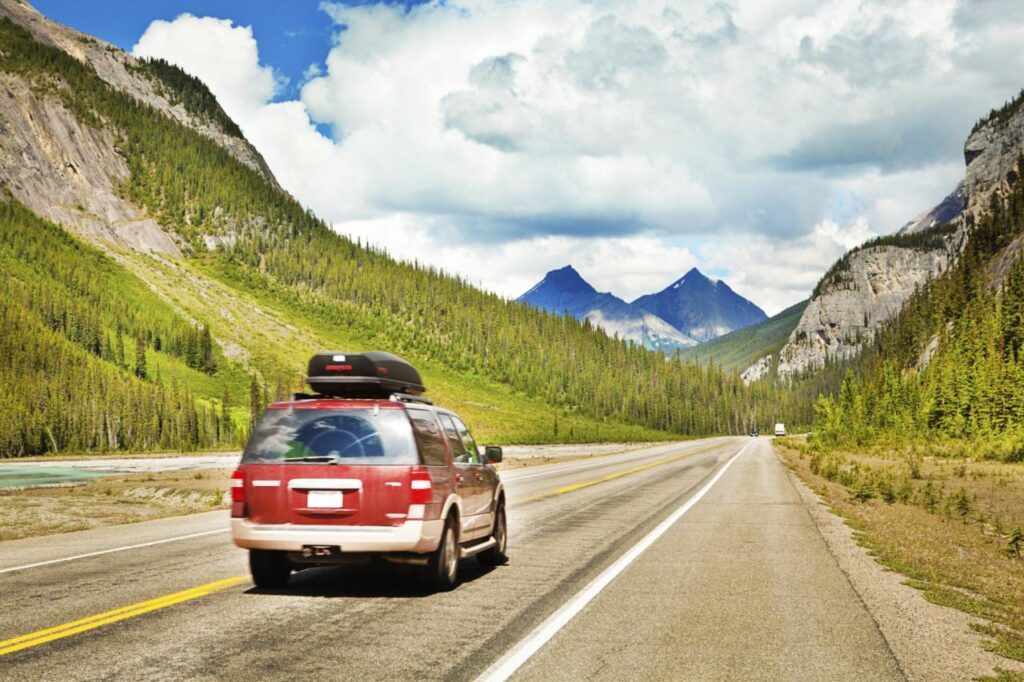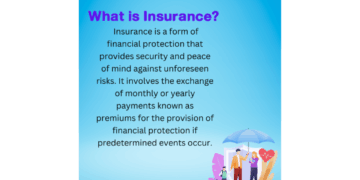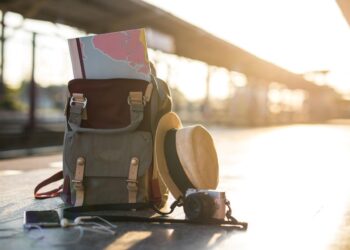In our fast-paced world, the desire to escape, to break free from routine, and to explore new horizons has never been stronger. Yet, transforming that wanderlust into a truly enriching experience requires more than just booking a flight; it demands thoughtful planning, a touch of wisdom, and an open mind. This comprehensive guide will help you wander wisely and effectively plan your next escape, ensuring it’s not just a fleeting break, but a profound and memorable journey. We’ll delve into defining your escape, the intricacies of preparation, navigating the adventure itself, and how to integrate its lessons into your life.
Defining Your Escape

Before you can plan, you must first understand what kind of escape you truly crave. Is it a thrilling adventure, a serene retreat, a cultural immersion, or something else entirely? Defining your escape is the foundational step.
A. Purpose and Intent: What do you hope to achieve from this escape?
1. Relaxation and Rejuvenation: Is your primary goal to de-stress, unwind, and recharge your batteries? This might involve beach holidays, spa retreats, or quiet time in nature.
2. Adventure and Challenge: Do you seek an adrenaline rush, a test of your physical or mental limits? Think hiking challenging trails, engaging in extreme sports, or exploring remote areas.
3. Cultural Immersion and Learning: Are you eager to understand new ways of life, learn a new skill, or explore historical sites? This could mean language courses abroad, culinary tours, or volunteering in a foreign country.
4. Self-Discovery and Reflection: Do you need space for introspection, to reconnect with yourself, or to gain clarity on life decisions? Solo travel, meditation retreats, or silent nature escapes can facilitate this.
5. Connection and Bonding: Is the escape about deepening relationships with loved ones? Family vacations, romantic getaways, or group adventures with friends fall into this category.
B. Duration and Timing: How much time do you have, and when is the best time to go?
1. Micro-Escapes (1-3 days): Perfect for quick refreshes. Consider local gems, nearby national parks, or a weekend city break.
2. Short Escapes (4-7 days): Ideal for exploring a single region or city thoroughly, or a focused activity like a trekking trip.
3. Mid-Length Escapes (1-3 weeks): Allows for more extensive travel, multi-country itineraries, or deeper immersion in one area.
4. Extended Escapes (1+ months): Suitable for sabbaticals, long-term backpacking, digital nomad experiences, or volunteer work. Consider seasonal variations, public holidays, and your personal schedule.
C. Travel Style and Preferences: How do you prefer to travel?
1. Budget vs. Luxury: Are you a frugal backpacker seeking authentic local experiences, or do you prefer the comforts and conveniences of high-end travel?
2. Solo vs. Group: Do you thrive on the independence of solo travel, or do you prefer the camaraderie and shared experiences of group trips?
3. Independent vs. Organized Tours: Do you enjoy planning every detail yourself, or do you prefer the ease and structure of a guided tour?
4. Fast-Paced vs. Slow Travel: Do you want to see as much as possible in a short time, or do you prefer to linger, absorb, and live like a local?
Meticulous Planning
Once your vision is clear, the real planning begins. Thorough preparation is the cornerstone of a stress-free and rewarding escape.
A. Research Your Destination Extensively: This is the most crucial step.
1. Safety and Security: Check government travel advisories, local crime rates, and political stability. Understand common scams or risks in the area.
2. Climate and Best Time to Visit: Research weather patterns, peak seasons, and off-peak benefits (fewer crowds, lower prices).
3. Culture and Customs: Learn about local etiquette, dress codes, social norms, and basic phrases in the local language. This shows respect and can enhance your experience.
4. Logistics and Infrastructure: Understand transportation options (public transit, taxis, ride-sharing), currency, banking facilities, and internet access.
5. Attractions and Activities: Identify must-see sights, unique experiences, and any activities that require advance booking.
B. Budgeting and Financial Preparedness: Money matters, so plan wisely.
1. Estimate All Expenses: Include flights, accommodation, food, local transport, activities, visas, travel insurance, and an emergency fund. Use online tools and recent traveler reports for realistic estimates.
2. Saving Strategy: Develop a concrete plan to save the necessary funds. Consider setting up a dedicated travel savings account.
3. Currency Exchange and Payment Methods: Understand the local currency, exchange rates, and common payment methods. Inform your bank and credit card companies of your travel dates to avoid issues. Consider carrying a mix of cash and cards.
C. Transportation and Accommodation Bookings: Secure the big-ticket items early.
1. Flights/Trains/Buses: Book well in advance for better prices, especially for popular routes or during peak season. Be flexible with dates if possible. Consider layovers and baggage allowances.
2. Accommodation: Research different types (hotels, hostels, Airbnb, resorts, guesthouses) based on your budget and style. Read reviews carefully. Book in advance, especially for high season or unique stays.
3. Local Transport: Plan how you’ll get around at your destination. This could involve renting a car, purchasing public transport passes, or understanding taxi/ride-share availability.
D. Health and Safety Protocol: Prioritize your well-being.
1. Medical Check-up and Vaccinations: Consult your doctor about necessary vaccinations and any specific health risks at your destination. Get routine check-ups.
2. Travel Insurance: Never skip travel insurance. It’s crucial for medical emergencies, trip cancellations, lost luggage, and other unforeseen events. Research policies thoroughly to ensure adequate coverage.
3. Medications and First-Aid Kit: Pack any prescription medications (with a copy of your prescription), and a basic first-aid kit for minor ailments.
4. Emergency Contacts: Keep a list of emergency contacts, your embassy/consulate information, and insurance details readily accessible (both physical and digital copies).
5. Safety Awareness: Be aware of your surroundings, avoid walking alone in unfamiliar areas at night, and trust your instincts. Store valuables securely.
E. Documentation and Administrative Tasks: Get your paperwork in order.
1. Passport and Visas: Ensure your passport is valid for at least six months beyond your return date. Research and apply for any necessary visas well in advance.
2. Copies of Documents: Make physical and digital copies of your passport, visa, tickets, insurance, and accommodation bookings. Store them separately from the originals.
3. Travel Advisories and Registrations: Register your travel plans with your country’s embassy or consulate if they offer such a service. Stay updated on any travel advisories.
4. International Driving Permit: If you plan to drive, check if an International Driving Permit (IDP) is required in addition to your home license.
Embracing the Journey

Once all the planning is done, it’s time to step into the experience itself. This phase is about being present and open to what unfolds.
A. Stay Flexible and Adaptable: No matter how meticulously you plan, unexpected things will happen. Embrace them as part of the adventure. A missed connection or a sudden change in weather can lead to surprising and memorable detours. A rigid mindset can hinder your enjoyment.
B. Immerse Yourself Locally: Go beyond the major tourist attractions.
1. Eat Local: Try street food, visit local markets, and dine in non-touristy restaurants. It’s often the best way to experience a culture and its flavors.
2. Engage with Locals: Learn a few phrases of the local language. Ask for recommendations. Be open to conversations; these interactions often lead to the most authentic experiences.
3. Explore Beyond the Main Path: Wander down side streets, discover hidden gems, and let serendipity guide you.
C. Prioritize Your Well-being: Your escape should leave you feeling refreshed, not exhausted.
1. Get Enough Rest: Don’t overschedule yourself. Allow for downtime and adequate sleep.
2. Stay Hydrated and Nourished: Drink plenty of water, especially in hot climates, and eat balanced meals.
3. Listen to Your Body: If you feel tired or unwell, take a break. Push yourself only when it feels right, not because you feel obligated.
D. Practice Mindfulness and Presence: Put away your devices and truly absorb your surroundings.
1. Engage Your Senses: Notice the sights, sounds, smells, and textures of your environment.
2. Savor Moments: Whether it’s watching a sunset, enjoying a quiet coffee, or observing daily life, allow yourself to fully experience and savor these moments.
3. Digital Detox (Optional): Consider limiting screen time to fully disconnect and reconnect with the real world.
E. Document Your Experiences: Create memories to cherish.
1. Photography and Videography: Capture the beauty and moments of your escape. But don’t let the camera become a barrier to experience.
2. Journaling: Jot down your thoughts, feelings, observations, and memorable interactions. This is a powerful way to process your journey.
3. Collecting Souvenirs: Choose meaningful mementos that remind you of specific experiences, rather than generic tourist items.
Navigating Challenges
Even the most well-planned escape can encounter bumps in the road. How you handle these challenges defines your resilience and can even enrich the journey.
A. Problem-Solving Mindset: Approach issues calmly and logically.
1. Assess the Situation: Understand exactly what the problem is.
2. Identify Solutions: Brainstorm possible solutions, even if they’re imperfect.
3. Take Action: Implement your chosen solution. Don’t dwell on what went wrong; focus on moving forward.
4. Seek Help: Don’t be afraid to ask locals, fellow travelers, or authorities for assistance. Many people are willing to help.
B. Patience and Perseverance: Things might take longer or be more complicated than expected.
1. Bureaucracy and Delays: Be prepared for potential bureaucratic hurdles or unexpected delays in transport.
2. Cultural Differences: What seems illogical to you might be perfectly normal in another culture. Practice patience and try to understand the local way.
C. Managing Setbacks and Disappointments: Not every moment will be perfect.
1. Lower Expectations for Perfection: Understand that some things might not live up to your idealized vision.
2. Find the Silver Lining: Even in a disappointing situation, try to find a positive aspect or a lesson learned.
3. Learn from Mistakes: If you made a planning error or a poor decision, reflect on it for future trips without dwelling on regret.
D. Dealing with Homesickness or Loneliness: Especially for longer or solo escapes.
1. Connect with Loved Ones: A quick call or video chat can help bridge the distance.
2. Join Group Activities: Participate in hostel events, tours, or classes to meet new people.
3. Focus on Your Purpose: Remind yourself why you embarked on this escape and the experiences you’re gaining.
The Return Journey
The escape doesn’t end when you return home. The lessons learned and the experiences gained continue to shape your life.
A. Reflect and Process Your Experiences: Take time to revisit your photos, journal entries, and memories.
1. What did you learn about yourself? Did you discover new strengths, overcome fears, or gain clarity on your values?
2. What new perspectives did you gain about the world? Did your understanding of other cultures or global issues deepen?
3. How has this escape changed you? Identify specific ways you’ve grown or shifted.
B. Share Your Story: Connect with friends and family and share your adventures.
1. Inspire Others: Your stories can encourage others to embark on their own escapes.
2. Relive Moments: Talking about your journey helps solidify the memories and insights.
3. Create Content: If you enjoy writing, photography, or video, consider creating a blog, photo album, or short film about your escape.
C. Integrate Lessons into Daily Life: Don’t let the growth fade away.
1. Apply New Skills: Did you learn a few phrases of a new language? Keep practicing. Did you become more adaptable? Use that skill at work.
2. Maintain New Habits: If your escape helped you de-stress or embrace mindfulness, try to incorporate those practices into your routine.
3. Shift Perspectives: Let your broader understanding of the world influence your daily decisions and interactions.
D. Counter Reverse Culture Shock (If Applicable): Returning home after a significant escape can sometimes feel disorienting.
1. Be Patient with Yourself: It’s normal to feel a bit out of place or to miss your travel life.
2. Reconnect Gradually: Ease back into your routine, and take time to reconnect with your home environment.
3. Find Local Adventures: Look for ways to continue exploring and learning in your own city or region.
E. Plan Your Next Escape: The joy of travel often lies in the anticipation and planning.
1. Keep a Wishlist: Maintain a running list of places you want to visit or experiences you want to have.
2. Start Dreaming: Use the inspiration from your last escape to begin envisioning your next adventure.
3. Leverage Lessons Learned: Apply the wisdom gained from your previous trip to make your next one even better.
Conclusion
A well-planned escape is more than just a break from routine; it’s an investment in yourself, a catalyst for growth, and a source of invaluable memories. By consciously defining your purpose, meticulously planning every detail, embracing the journey’s spontaneity, and integrating its lessons, you move beyond mere tourism. You truly wander wisely. So, close your eyes, envision your next horizon, and begin the exciting process of planning an escape that will not only show you the world but also reveal new facets of yourself. Your next great adventure is just a plan away.







